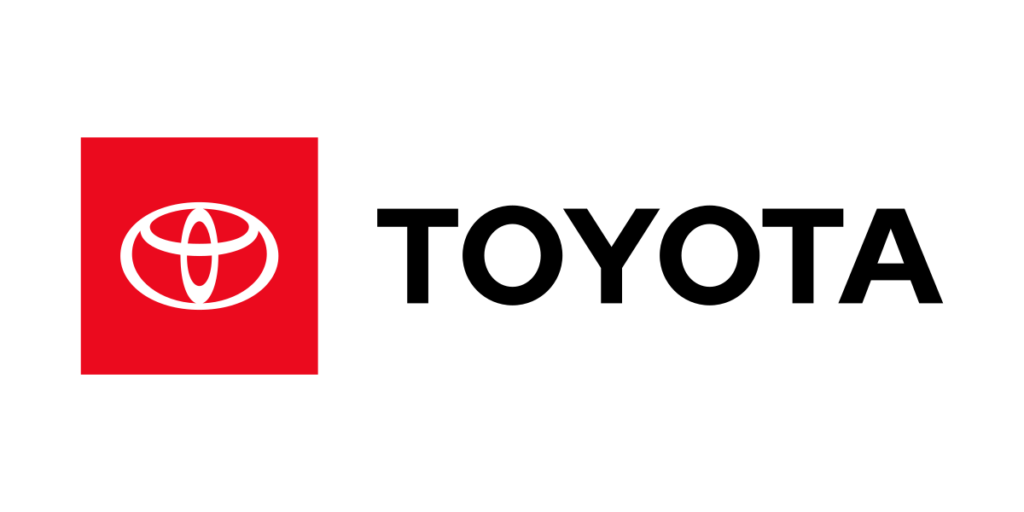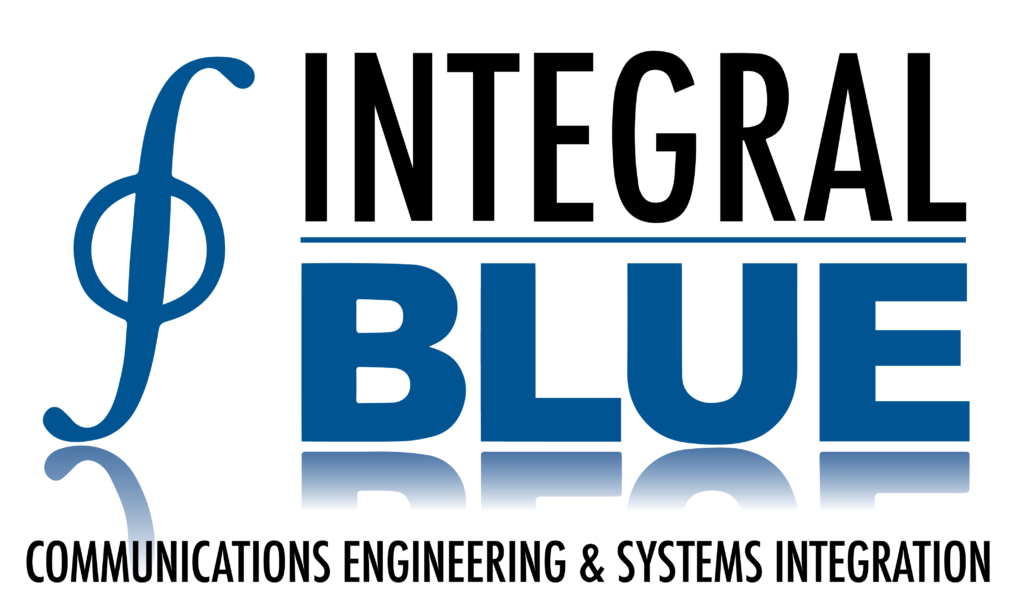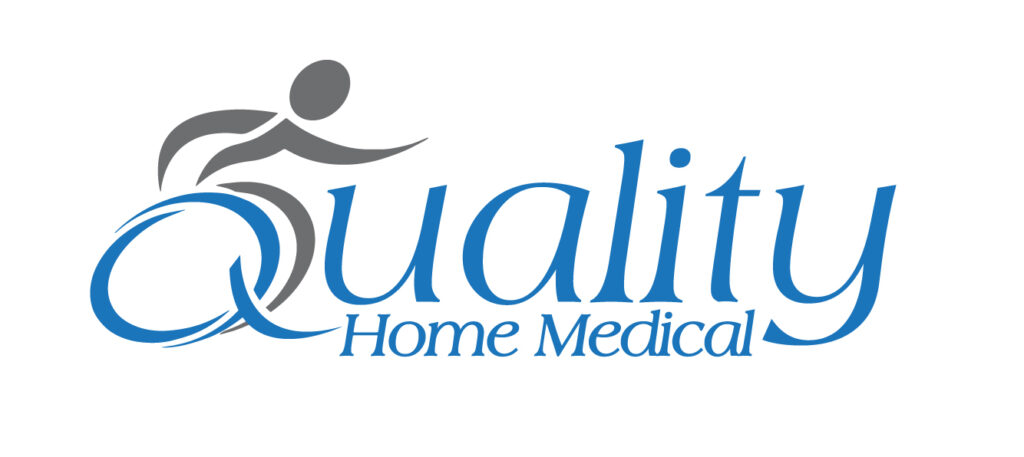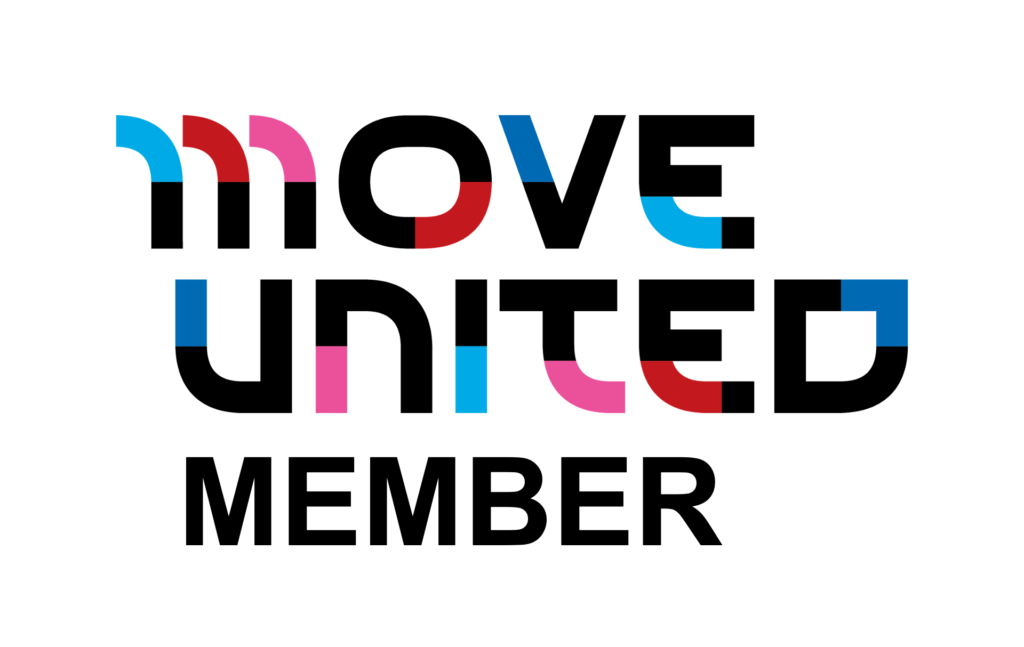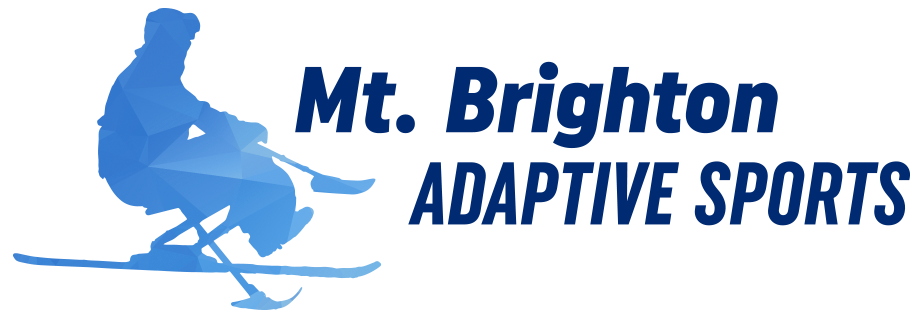
We believe people of all abilities deserve to experience the freedom of downhill snow sports.
Mt. Brighton Adaptive Sports Program (MBASP) is a completely volunteer run 501(c) (3) non-profit organization, that provides a life changing outdoor learning experience to people of all abilities, with special focus on their individual needs. MBASP provides world-class adaptive sports opportunities for people with disabilities in the lower Michigan area. Let us inspire you to discover new abilities, learn new skills, and rekindle your spirit through outdoor recreation.
Founded in 2014, MBASP’s goal is to assist children, adults, veterans with physical or cognitive disabilities to participate, extending the thrill of outdoor recreation through ski, snowboard, and ski bike lessons to guests of all ages and abilities. This is accomplished with a large variety of adaptive equipment to assess individual needs prior to arrival and to ensure that the appropriate equipment is available. Specially trained professional instructors also tailor each lesson to the needs of the participant for a safe, yet unforgettable experience. We are recognized as a leader in providing first class training to people of all abilities.
Downhill Snow Sports
At Mt. Brighton Adaptive Sports (MBASP), PSIA certified professional ski and snowboard instructors will help adaptive athletes experience the freedom of downhill snow sports. Our programs meet the needs of all athletes regardless of their level.
Mt. Brighton Adaptive Sports has a wide variety of adaptive equipment and certified ski and snowboard instructors for all types of athletes. For Mt. Brighton Adaptive Sports there is not a barrier to having fun on the slopes. Adaptive downhill snow sports for all types of disabilities can be found.
What to Expect
- First and foremost, your safety is our top priority – a certified trained ski or snowboard instructor and/or trained volunteer will work with participants.
- When you arrive, you will check-in, fill out waiver forms, pay any fees if applicable, and be matched with an instructor/volunteer.
- If you are a first time participant you will receive a screening call or email and go through an initial assessment during which they will ask you about your mobility level, determine range of motion, strength, flexibility, areas of weakness and endurance in order to make sure you have the most appropriate equipment.
- Instructors will set goals for your lesson that match your desires, taking into consideration his/her knowledge about the area and conditions for the day.
- Beginner lessons will start on the flat snow with skills and drills.
- All participants are required to wear a helmet.
- Please dress warm and wear layers of non-cotton winter clothes.
- Bring a water bottle and sunscreen.
- Lessons typically last from 1.5 to 3 hours.
- Most of all, have fun and unleash your inner athlete!
Methods of Downhill Snow Sports
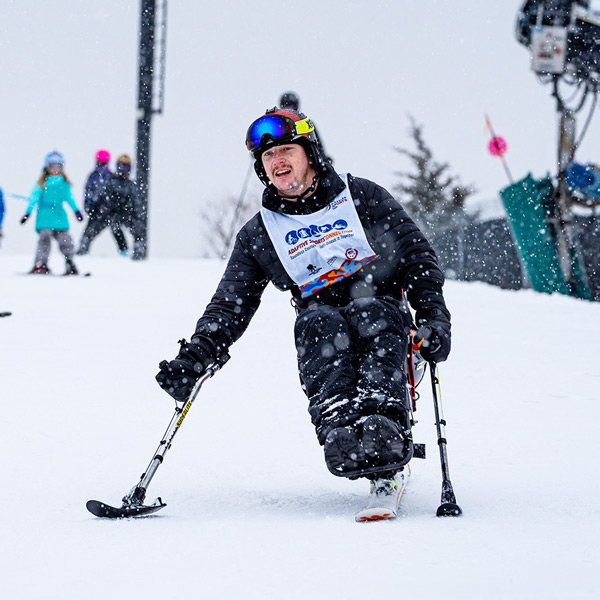
Mono Skiing
Mono Skiing can be used for people with lower extremity paralysis, lower extremity weakness, or limb loss. Mono-skiing involves sitting in a specially designed bucket-chair atop a single, central ski. Mono-skiing requires extremely well-developed upper body strength and control, as steering is handled entirely by turning the upper body and using the arms with specially shortened forearm crutches with mounted skis (hand held outriggers). This can include but is not limited to people with spinal cord injuries, spina bifida, and cerebral palsy.
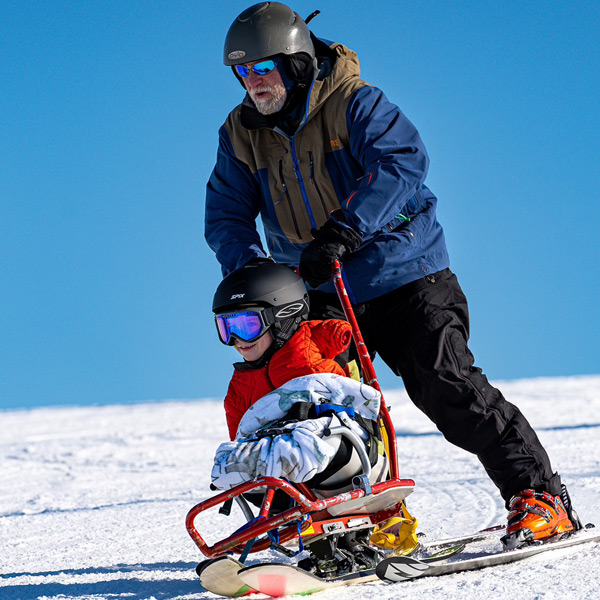
Bi-skiing
Bi-skiing is for people who have lower extremity paralysis/weakness who also have weakness in their trunk and arms. This can include but is not limited to people with multiple sclerosis, muscular dystrophy, cerebral palsy, brain injuries or spinal cord injuries. Additionally, people with cognitive impairments including but not limited to down-syndrome, autism, or traumatic brain injury could utilize a bi-ski. A bi-ski utilizes a bucket style seat with two skis underneath it to provide more stability. Some athletes will assist with steering using hand hold outriggers; others will be steered completely by the instructor
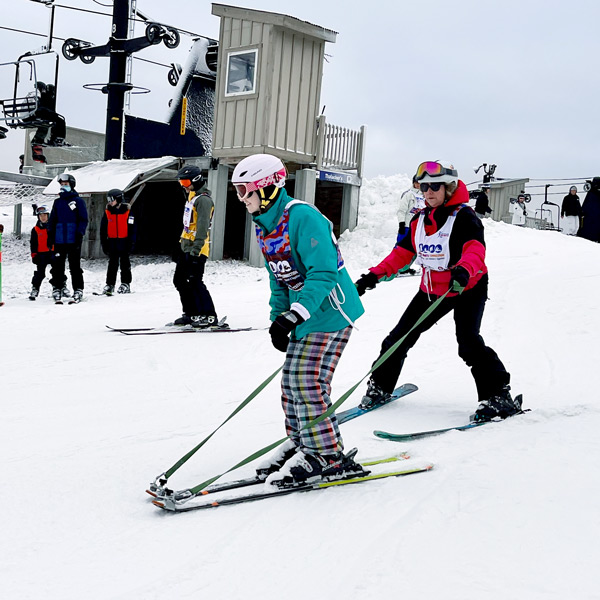
Two-track
Refers to the two tracks left in the snow behind the skier. Two-trackers use two skis and two boots and may use a ski bra attached to the ski tips. Ski bras assist with lateral control and help maintain current ski position. Two-trackers can be tethered by instructors for better control of speed and turns. This type of skiing can be utilized by people with cognitive impairments including but not limited to TBI and autism, as well as people with developmental disabilities, vision or hearing impairment, or people who have conditions like cerebral palsy who have mild difficulties with walking.
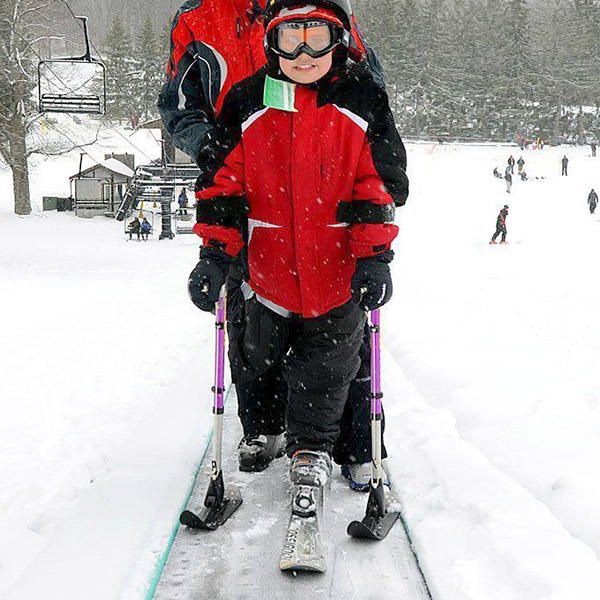
Three-track
Three-track skiing is stand-up skiing where you can utilize one full-size ski and two handheld outriggers for balance/support, or utilize two full-size skis and one handheld outrigger, giving the skier three points of contact with the snow. This type of skiing can be utilized by people with limb loss and a variety of other conditions including but not limited to hemiplegia, cerebral palsy, muscular dystrophy, and multiple sclerosis.
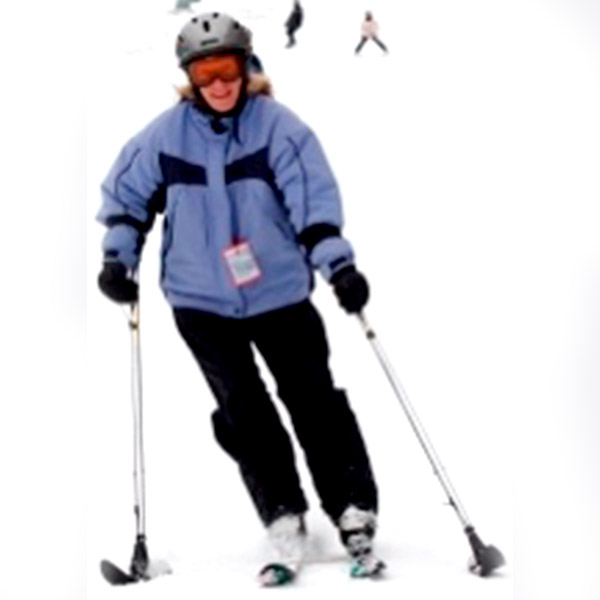
Four-track
Four-track skiing is stand-up skiing where you utilize 2 full-size skis and two handheld outriggers for balance and support. This type of skiing can be utilized by people with mild lower extremity weakness and balance impairments. This includes but is not limited to double amputees, spina bifida, cerebral palsy, muscular dystrophy, multiple sclerosis.
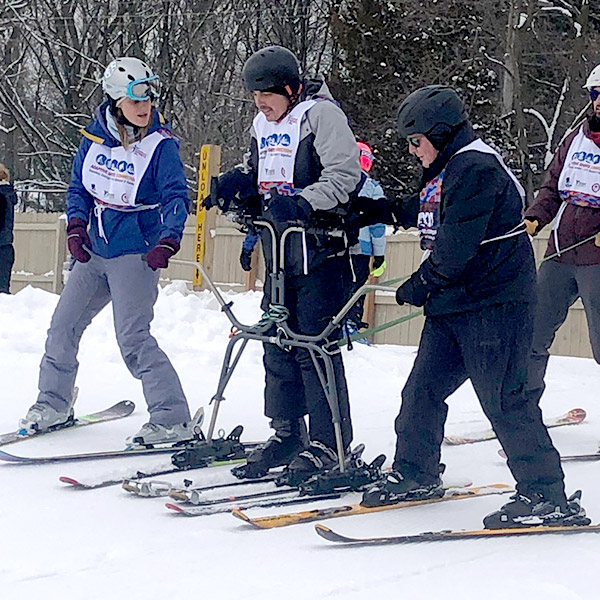
Slider
Slider skiing is with a frame that is mounted on skis and provides forearm support to aid with balance and control. While using the slider the athlete will also be wearing two skis. It is useful for athletes with significant balance challenges. This includes but is not limited to people with multiple sclerosis, traumatic brain injury, and cerebral palsy. The slider will always be connected to the instructor for speed control and steering assist (tethering).
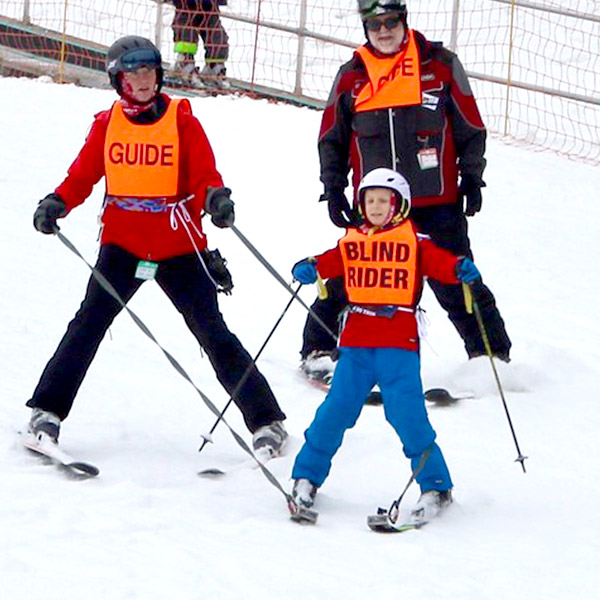
Visual Impairment
Visual Impairment is not a barrier to fun on the slopes. Skiers with visual impairments with normal strength and balance will learn to ski standing up and their instructor will be their guide during the lesson. For safety reasons both the skier and the instructor will wear orange vests so that others on the hill will be made aware that the skier has visual impairments.
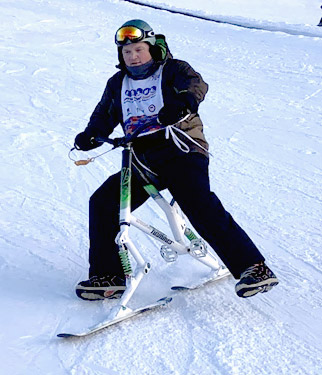
Ski Bike
The Ski Bike is essentially a modified bicycle frame with handlebars and a long seat attached to skis. A ski bike is a great way to fill the gap between stand-up and sit-down skiing. Ski bikes can be ridden independently or tethered if needed. Ski bikes require a certain amount of balance and leg/arm coordination to maneuver safely in a mountain environment. This includes but is not limited to people with balance, muscular or strength problems, multiple sclerosis, amputees, cognitive impairments or temporary disabilities (knee injuries or hip replacements).
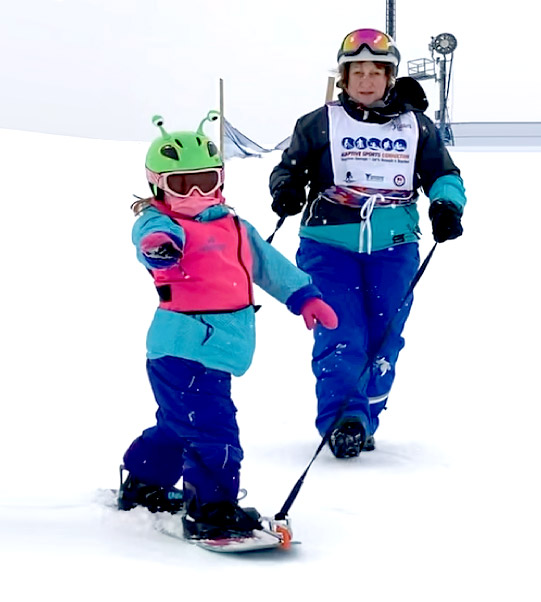
Adaptive Snowboarding
Adaptive Snowboarding refers to a modified version of the sport, with changes in equipment, that enable persons with physical disabilities to participate. Lessons may utilize traditional snowboards or modified snowboards and participants can be tethered. Balance outriggers may also be utilized to assist the participant with maintaining an upright position and balance. Adaptive snowboarding can be utilized by people with visual, auditory and cognitive disabilities, as well as those with some muscle weaknesses or impaired function in their extremities.
Equipment used with various methods of downhill snow sports
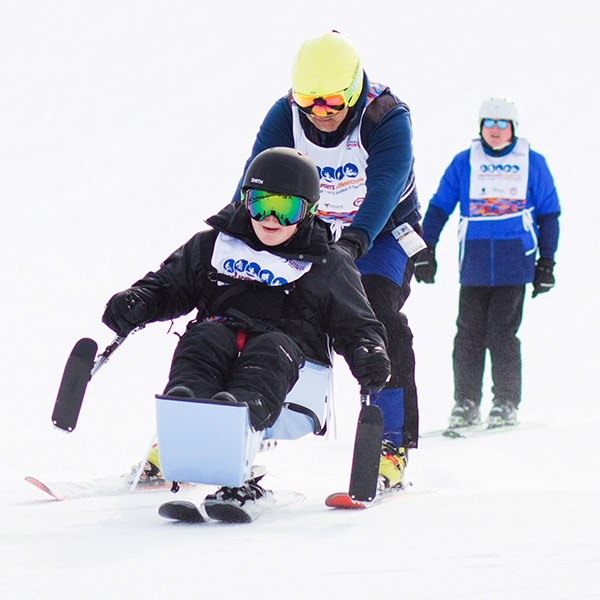
Outriggers
Outriggers are metal forearm crutches with ski tips on the ends, some having adjustable brakes to aid with balance if necessary.
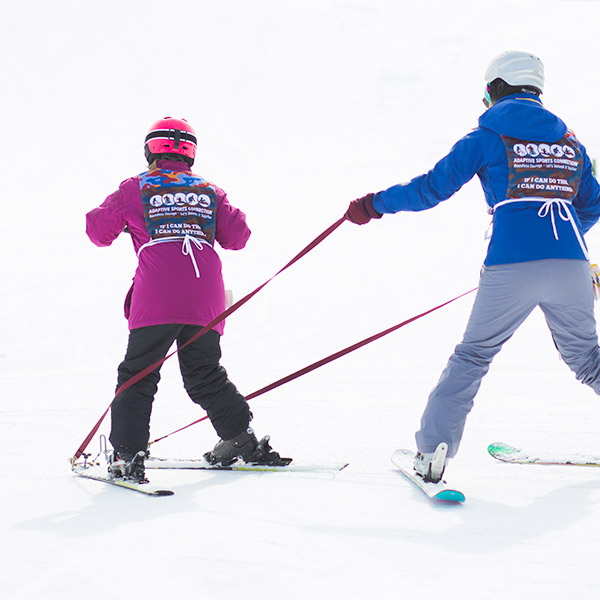
Tethers
At times for safety reasons and to assist during the lesson with turns and speed control an instructor may wear a tether that attaches to the skier or the equipment.
Participant FAQ
We are here to answer any questions you, your family, or friends might have about participating in adaptive sports. We have compiled a list of frequently asked questions, but please feel free to email mtbadaptive@gmail.com or call 810-522-8904 if you have more questions about our programs.
MBASP will conduct a pre-assessment interview with you via phone or email a few days prior to your lesson to determine equipment needs and ensure equipment is available and in working order to fit needs.
We welcome the assistance of family members or caregivers when you are getting ready for your lesson including but not limited to: assisting you in dressing, toileting, and getting down to the ski area safely. If a family member or caregiver would like to assist during the lesson on the hill they need to sign up as a volunteer with our program.
We will try our best to reschedule based on availability, weather and conditions permitting of course.
We realize that life happens and you may need to change or cancel your reservation. Please email mtbadaptive@gmail.com or call 810-522-8904 as soon as you know that you need to cancel or change your reservation so we can try to fill your spot with other eager participants.
You can register for events by heading to our event calendar.
Lessons take place at Mt. Brighton Ski Resort – 4141 Bauer Rd., Brighton, MI 48116
Calendar
How Can You Help Support?
The Mt. Brighton Adaptive program has many opportunities for volunteers. Not a skier or boarder, that’s OK we can also utilize your gifts and talents in the areas of social media, photography, fundraising and public relations.
Whether you are a lifetime advocate or new to Mt. Brighton Adaptive Sports, we invite you to join us. We welcome new ideas and value enthusiasm from members and volunteers.
Donations
Mt. Brighton Adaptive Sports Program (MBASP) is a completely volunteer run, non-profit organization, that focuses on improving the lives of individuals with disabilities by providing sports and recreation opportunities.
For most of us, skiing or snowboarding is something we take for granted. But for people with physical or cognitive limitations, engaging in sports can be a challenge.
Your gift matters – give people with disabilities a sense of freedom, and the opportunity to live a healthier, happier, more productive life.
Donate today to support adaptive athletes.
Volunteer
The Mt. Brighton Adaptive Sports Program has many opportunities for volunteers. Not a skier or boarder, that’s OK we can also utilize your gifts and talents in the areas of social media, photography, fundraising and public relations. Whether you are a lifetime advocate or new to Mt. Brighton Adaptive Sports, we invite you to join us. We welcome new ideas and value enthusiasm from members and volunteers.
Interested in Volunteering?
You can complete a volunteer profile by clicking HERE and then register for events on our volunteer calendar.
- Minimum age to volunteer is 15.
- Volunteers of any skiing or boarding ability are welcome and will be matched with lead instructors and adaptive participants based on their skills.
Board of Directors
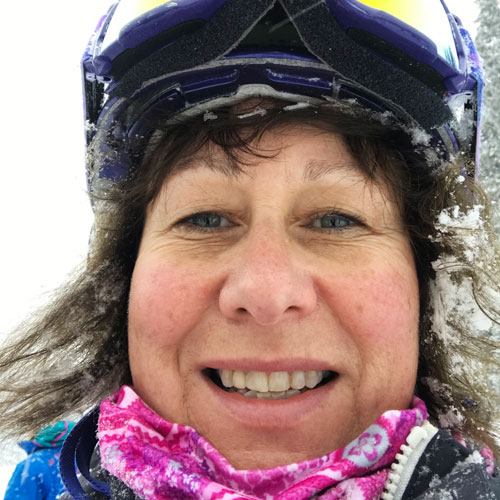
Marj D’Alecy
Marj D’Alecy has been actively involved with Mt Brighton Adaptive Sports since 2016 and is currently serving as board president. She is a level 1 Adaptive ski instructor and is also on staff at ski school at Mt Brighton. Her professional background as a Physical Therapist and love for for skiing and snowboarding allows her to blend these 2 passions beautifully in the world of adaptive skiing! Growing up skiing in Scotland, she learned to dodge sheep and rocks in the Highlands!! She has been a board member at Mt Brighton Adaptive Sports since 2017.
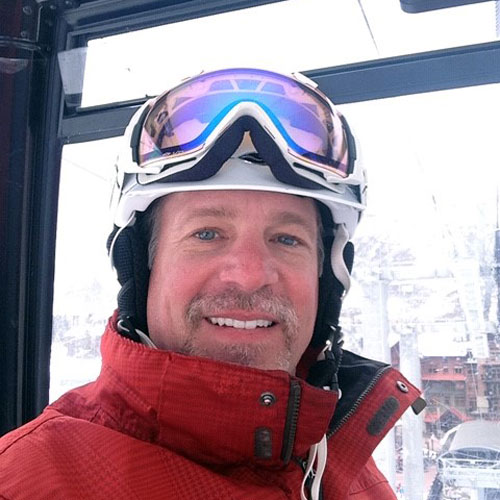
Jim Munson
Jim is a founding member of Mt. Brighton Adaptive Sports. Jim is also a founding member of TAASC now Adapted Sports Connection (ASC). “I have been so fortunate to learn from an incredible group of like minded people. Adapted sports changed my life and now the joy that comes with helping others experience the life changing thrill of skiing is what it’s all about!” Jim is a graduate of Wright State University in Dayton, Oh. He currently lives in Howell Mi.
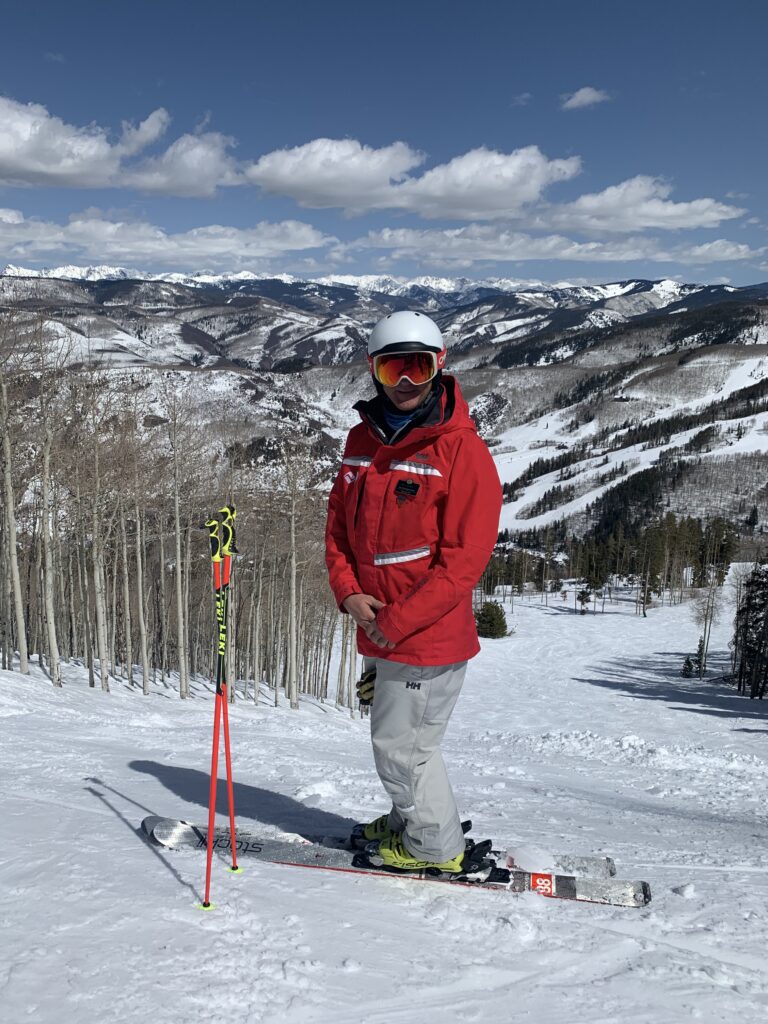
Michael Waning
Michael Waning began his second term as a Mt. Brighton Adaptive Sports Board Member in October 2023. He is serving as the liaison between MBASP and Mt. Brighton Ski Resort as he is the ski school manager at Mt. Brighton. He has over 36 years experience working in the ski industry and is beginning his 12th season at Mt. Brighton. He states “I would like to thank all for this opportunity to work with such a dedicated group to make dreams come true for individuals to enjoy the sport of skiing.”
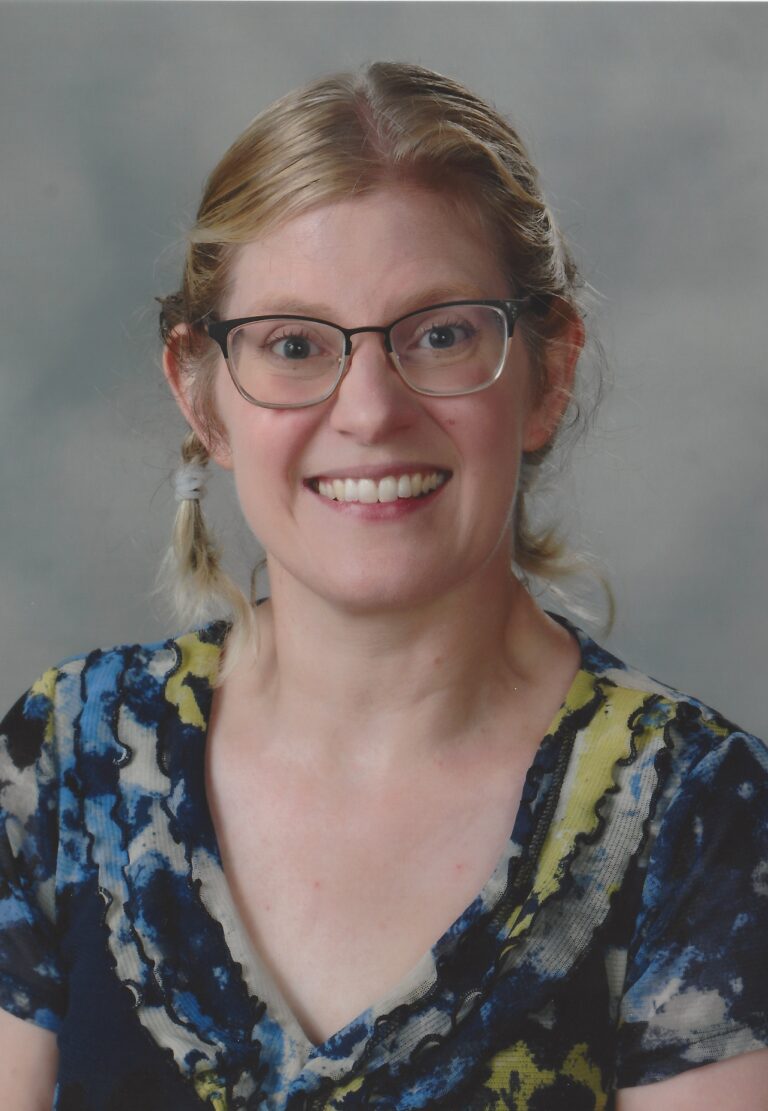
Brittany Orians
Brittany has been a board member with Mt. Brighton Adaptive Sports since 2019 as she saw a need for athlete input and does a lot of behind the scenes work for adaptive ski events, she is also an athlete with the organization. She first learned about Mt. Brighton Adaptive Sports when she participated in an adaptive ski experience in 2017 with the MSU adaptive sports club. She was intrigued by the sport and kept going for lessons thinking she’d always be in a sit ski. But with the encouragement of the amazing volunteer instructors and assistants she started learning how to 4 track ski and is determined to 4 track ski independently someday! Brittany is a licensed social worker in the state of Michigan and lives in Okemos with her husband and daughter.
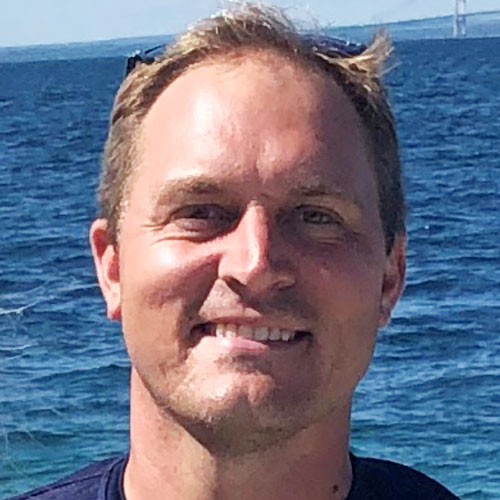
Chris Scheich
Chris has been a volunteer and board member with Mt. Brighton Adaptive Sports since 2020. He is passionate about making a difference in the community and sharing the gift of mobility for all. Over the years, Chris has volunteered in different ways, always finding a way to help others build confidence to overcome obstacles in order to reach personal goals, be it sports or other opportunities. He also enjoys anything that involves outdoor sports and adventures, especially skiing and being able to share my passion with others. Chris is a Mechanical Engineer and lives in Hartland with his wife and 2 adopted children Alex and Isabella.
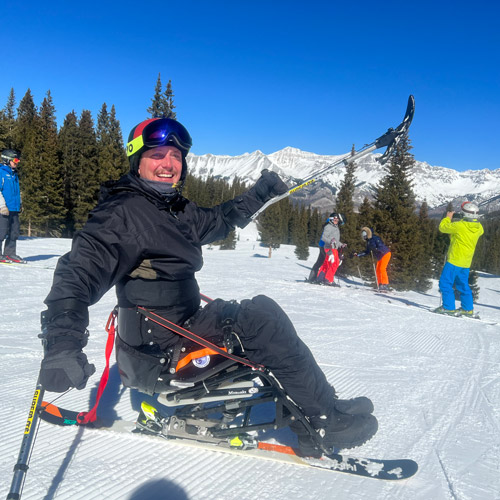
Chris Briggs
Chris is an avid mono skier from Lansing, and joined the Board in 2022.
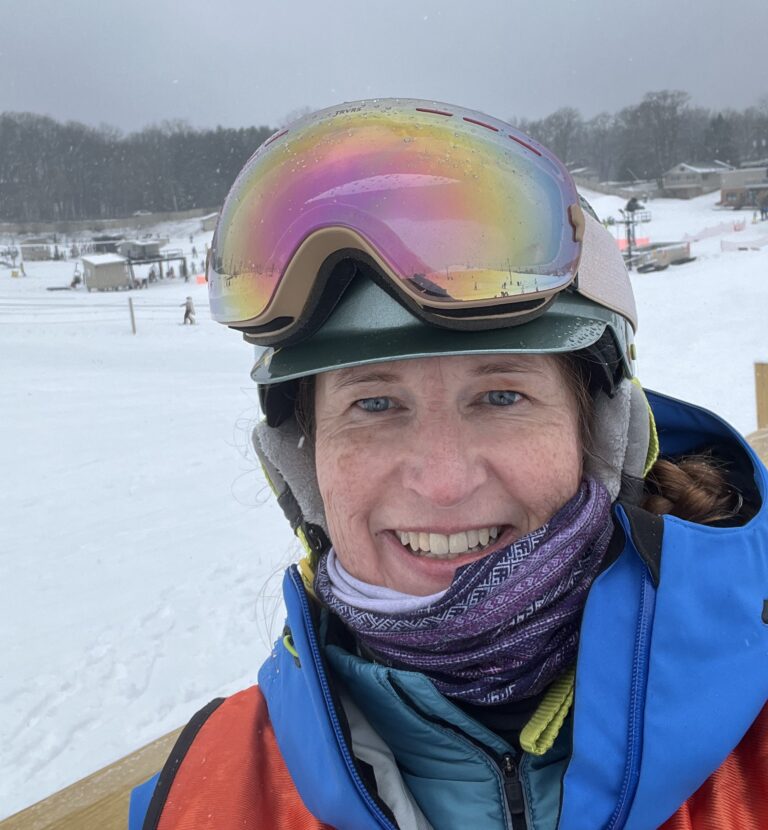
Suzanne Conover
Suzanne joined the board in 2024. She is a PSIA Level One ski instructor and has been an adaptive ski instructor for the past ten years. Growing up skiing in the Midwest, she competed in slalom and moguls, giving her a dynamic style on the slopes. Suzanne has thoroughly enjoyed working with the MBASP team and is delighted to join the board as Secretary. One of her most memorable experiences was with a three-track student; it was the student’s first time skiing since losing her leg, and she was turning confidently within three runs. The smile on her face is something Suzanne will never forget. Her passion is helping everyone learn to slide on snow.
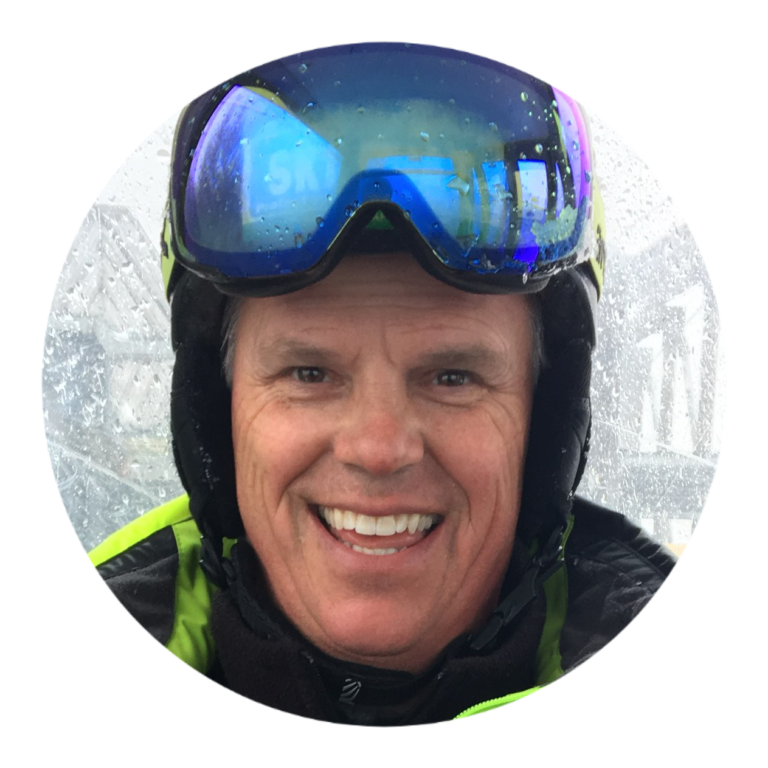
Steve Miller
This is Steve Miller’s first year as a member of Mt. Brighton Adaptive Sports. Steve has been an avid skier since he was five and is always looking for a new adventure. He was a member of the National Ski Patrol and served on the Mt. Brighton Ski Patrol for 17 seasons where he held various leadership positions. He currently holds an Alpine Level 2 instructor certification through the Professional Ski Instructors of America (PSIA). He is very passionate about teaching and sharing his love of skiing with others and is looking forward to another great season on the snow.

Sam Edwards
Sam has been actively involved with Mt Brighton Adaptive Sports since 2022, and joined the board in 2025 as treasurer. She also does a lot of behind the scenes work for adaptive events. She loves working with adaptive athletes and the joys that come with it. Sam’s been skiing since she was 5 years old. She played softball in college and works as a data analyst. She lives in Canton with her husband and dog, Ace.

Mefi Barrera
Mefi joined the board in June 2025. He began taking bi-ski lessons with Mt. Brighton Adaptive Sports in February 2024 and his short-term goal is to gain the skills to ski untethered. Growing up in Guatemala as a polio survivor, skiing and snow were beyond his dreams, but they have since become a reality for him. The discovery of skiing has sparked his enthusiasm for other sports – he now plays sled hockey and eagerly embraces other adaptive sports.
Mefi is fluent in English and Spanish, and conversant in French. He holds a Bachelors of General Studies from the University of Miami and brings extensive professional experience in Export and International Finance.
Contact Us
To contact Mt. Brighton Adaptive Sports please email mbasp@mtbadaptivesports.org or send us a message on our Facebook page, Mt. Brighton Adaptive Sports.
Mt. Brighton Adaptive Sports
Mt. Brighton Ski Resort
4141 Bauer Rd., Brighton, MI 48116
